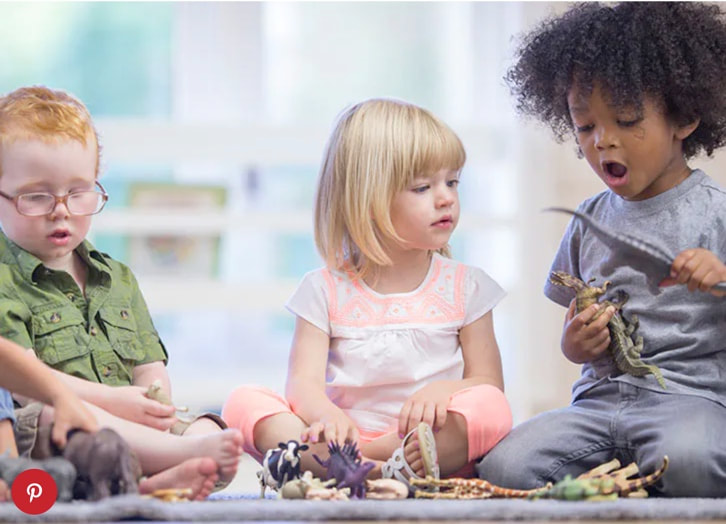Emotionally Intelligent Marriages: How to Improve Emotional Intelligence in Relationships
Building an emotionally intelligent marriage is more than a goal—it’s a transformative process that strengthens relationships over time. When both partners embrace emotional intelligence (EQ), they enhance their emotional well-being and relationship health. Emotional intelligence allows couples to understand and manage their emotions while fostering a more profound connection through empathy, communication, and trust. In this blog, we’ll explore the concept of emotionally intelligent marriages and how couples retreats can help couples develop these essential skills.
What is Emotional Intelligence in Relationships?
Emotional intelligence in a relationship is the ability to see, understand, and work with emotions—yours and your partner’s. It is being attuned to how feelings influence interactions and using that insight to form healthier connections. The five basic components of emotional intelligence required for relationships are:
Self-awareness:
Self-awareness is the ability to notice your emotions, recognize how they influence your behavior, and manage them. Being self-aware also makes you more likely to notice the impact of your behavior on your partner, a key element for good relationship dynamics.
Self-regulation:
It is the ability to control one’s response and emotions. It prevents impulsivity, allows thoughtful discussions, and prevents blind responses when stressed.
Empathy:
It is the ability to feel and understand what your partner is experiencing. This deep empathy creates a strong bond and allows both partners to support one another emotionally.
Social skills:
Strong communication and interpersonal skills. These help you manage conflict, clearly state your needs, and resolve disagreements in a way that increases understanding.
Motivation:
The intrinsic motivation to build a healthy relationship. This includes a commitment to growing, understanding, and emotional fulfillment as a couple.
Cultivating these five pillars of emotional intelligence can help couples build a relationship founded on trust, respect, and communication.
How Emotional Intelligence Impacts Marriages
Emotional intelligence is vital to the success of relationships. Here’s how it directly impacts marriages:
1. Enhances Communication
Communication challenges are one of the most common issues couples face. Misunderstandings and unexpressed feelings often lead to unnecessary arguments. Emotional intelligence, on the other hand, helps partners communicate better, listen more, and respond correctly. When emotional intelligence is developed, couples are more at ease expressing their feelings without fear of judgment. They will more easily ask questions, ask their partner how they feel, and provide constructive, not destructive feedback.
2. Eases Conflict Resolution
There is no conflict-free marriage, yet emotional intelligence allows couples to manage conflict healthily and positively. Emotionally intelligent couples are better at managing conflict calmly, reducing defensiveness, and promoting understanding. Instead, they manage disagreement with sensitivity and poise, which welcomes open and honest communication. Couples can manage their emotions when disagreeing by self-regulation and empathy, preventing harmful words or reactive actions. This leads to better conflict resolution and a healthier relationship in the long term.
3. Develops Trust and Intimacy
Trust is the foundation of all healthy relationships, and emotional intelligence plays a key role in creating and maintaining it. Emotionally intelligent couples get to know each other, validate their feelings, and turn their relationship into a safe harbor where both feel listened to and valued. Empathy fosters intimacy because it encourages vulnerability, causing both partners to feel at ease opening up without fear of rejection. This emotional safety causes partners to become more open about their thoughts, desires, and problems and builds a deeper emotional bond.
Emotional Intelligence and Resilience in Marriages

Emotional intelligence helps in good communication and conflict resolution between couples and is also necessary for building resilience in marriage. Life presents many uncertainties, including economic challenges, family pressures, and personal health issues. Couples with high emotional intelligence are best suited to face such pressures together. With both of them able to manage their emotions, they will likely stand united against the challenges. Emotionally intelligent couples resolve problems more solution-oriented, rather than being paralyzed by frustration and blame. Rather than allowing problems to push them apart, emotionally intelligent couples fare better at staying connected and coping with problems as a team. Being resilient enables their relationship and encourages them to grow together despite the rough patches.
The Role of Vulnerability in Emotionally Intelligent Relationships
Vulnerability is usually regarded as a flaw, but it is a force to be reckoned with in emotionally intelligent marriages. Being vulnerable with your partner means being honest and open about your feelings, fears, and desires. It demands trust and willingness to be authentic without fear of rejection or judgment.
When both partners exercise vulnerability, they create emotional safety that allows for more intimacy. Since both partners open up about their own experiences and emotions, they become empathetic and understanding as they can relate to each other’s triumphs and losses. Emotional intelligence allows partners to exercise vulnerability without exposing or threatening themselves. Instead, they consider it an opportunity to become more intimate and closer to one another emotionally.
How to Improve Emotional Intelligence in Relationships?
Emotional intelligence needs to be developed continually through practice and dedication. The following are some practical tips you can apply to cultivate emotional intelligence in your relationship:
1. Practice Active Listening
Active listening is not just hearing your partner—it’s being fully present and attentive to the conversation. Listening attentively without interrupting shows your partner you care about their thoughts and feelings. This builds emotional intimacy and enables you to better understand their needs.
2. Practice Open Communication
Open and honest communication is a building block of emotional intelligence. Communicate your emotions to your partner and ask them to do the same. Be open about your feelings and be ready to listen without judging. This will create mutual understanding and deepen your emotional bond.
3. Develop Empathy
Empathy is essential in any relationship. Try to imagine yourself in your partner’s position and understand things from their point of view. Being empathetic means you’re affirming their experience and increasing the connection.
4. Reflect and Self-Awareness
Self-awareness is the first step towards developing emotional intelligence. Think about your feelings and how they influence your behavior daily. After you become more aware of your emotional triggers and reactions, you can begin to manage them, improving your overall communication and emotional responses.
5. Attend Emotional Intelligence Workshops
Emotional intelligence workshops or retreats can be incredibly enriching for those dedicated to enhancing their relationships. These workshops study emotional intelligence skills in a positive environment and give participants tools to navigate common relationship challenges.
Strengthening Your Relationship at Couples Retreat

At Couples Retreat, you can engage in expert workshops and coaching sessions that help you develop emotional intelligence. Throughout the retreat, you will have a peaceful environment in which to work on building a stronger connection with your partner. With an expert and licensed Marriage Therapist guiding you through exercises that enhance communication, emotional awareness, and empathy, this retreat is the perfect time to invest in your relationship.
Whether you want to improve communication, resolve conflict, or strengthen your emotional bond, Couples Retreat provides the space and tools needed for lasting growth. Take the time to reconnect and foster a healthier, more emotionally intelligent relationship with the support of expertly tailored programs.
FAQs
1. What is emotional intelligence in relationships?
Emotional intelligence in relationships refers to the ability to understand, manage, and express emotions constructively and positively. It’s knowing your emotional state, its influence on your thinking and behavior, and feeling your partner’s feelings. Emotional intelligence helps you master your responses, particularly in trying circumstances, to avert escalation. Emotional intelligence in a relationship also involves empathy, which allows you to see your partner’s needs, concerns, and feelings more clearly. Through emotional awareness and communication, emotionally intelligent couples can avoid misunderstandings and develop a closer connection, ultimately strengthening the relationship and creating a more supportive and loving environment.
2. How can emotional intelligence improve communication in a marriage?
Emotional intelligence makes for better communication in a marriage because it enables couples to communicate more openly, honestly, and respectfully. Emotional intelligence permits couples to freely express themselves without fear of being criticized, so they can easily convey their needs, wants, and concerns. By practicing emotional intelligence, spouses become good listeners, meaning they hear the other person out, instead of just planning their response. This type of listening is considerate and validates the other person’s emotions. Further, emotional intelligence prevents miscommunication as it teaches partners to listen for tone and non-verbal cues. Overall, it results in a more precise understanding and reduces the likelihood of conflicts arising due to misunderstandings.
3. What are some ways to build emotional intelligence in a marriage?
Building emotional intelligence in a marriage takes several pragmatic and ongoing strategies. First and foremost, both partners must self-reflect, becoming more sensitive to their emotional cues and responses. Understanding why certain situations evoke frustration or happiness may give both partners greater control over their feelings. Another effective way of building emotional intelligence is active listening—when partners listen attentively without interrupting or judging, they empathize and respect each other’s emotions. Couples can also do empathy-building exercises, such as putting themselves in their partner’s shoes or asking questions to see things from their partner’s perspective. Mindfulness techniques may also help couples stay present during interactions so that they can process emotions before reacting. Relationship therapy or coaching may provide professional guidance to develop emotional intelligence over time.
4. Why is emotional intelligence necessary for long-term relationship success?
Emotional intelligence is key to enduring relationship success because it enables couples to successfully manage and work with their own emotions in ways that build connection and understanding. Conflict and disagreement are inevitable in marriage, but emotional intelligence enables them to encounter them with patience, empathy, and calmness, instead of responding defensively or hastily. Highly emotionally intelligent partners can resolve conflicts in a way that builds the relationship, rather than allowing them to escalate into long-term issues. Emotional intelligence also helps to facilitate deeper emotional intimacy because it enables partners to be open with each other and positively express their needs. By cultivating emotional intelligence, couples can build a strong foundation of trust, communication, and emotional support that stands the test of time during difficult times and keeps the relationship going.
5. Can emotional intelligence be learned in relationships?
Yes, emotional intelligence is not something we are born with—it’s a skill that can be developed and strengthened over time with intentional effort. Many people naturally possess some emotional intelligence, but learning how to apply it effectively in relationships takes practice. Couples can begin by engaging in self-awareness exercises, which involve identifying their emotional responses and understanding why they feel a certain way in specific situations. From there, they can practice regulating their emotions through mindfulness or deep breathing techniques, which can help calm intense feelings during conflict. Couples can also work on developing empathy by actively listening to each other, validating each other’s emotions, and being more attuned to their partner’s needs. Emotional intelligence can grow with time, practice, and patience, leading to a more harmonious and fulfilling relationship.
Conclusion
Emotionally intelligent couples are based on understanding, trust, and good communication. When couples embrace emotional intelligence, their relationships can strengthen, their conflict management improves, and they become more emotionally connected. Developing emotional intelligence is required for a strong and lasting relationship if you want to become more connected with your partner or move beyond old patterns. Investing time and effort in emotional development and improving emotional bonding can lead to a healthier marriage where both parties feel heard, valued, and nurtured.







